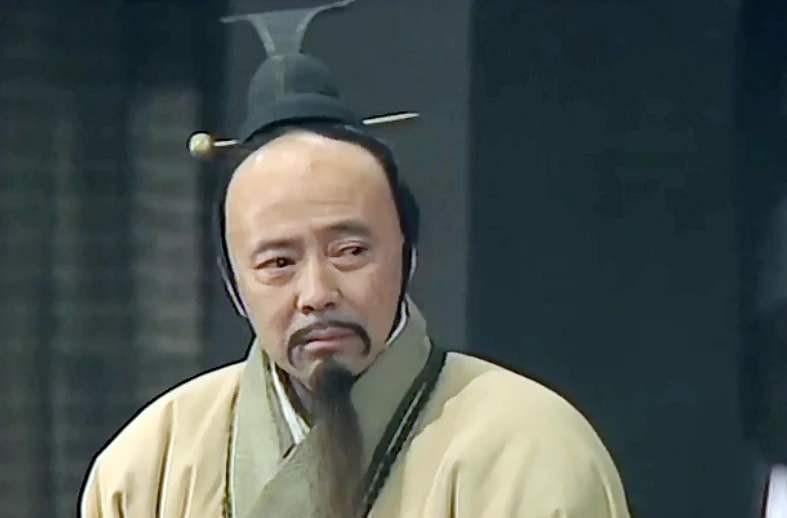The king of the state of Qi asked Yan Zi, how did the loyal subjects serve the king? Yan Zi replied: When there is a difficult time, do not accompany him to death, and do not go with him when fleeing. Qi Jun said unhappily, Can this be regarded as a loyal subject? Yan Zi replied, "If the courtiers' advice is adopted, and if the courtiers' plans are heeded, the country cannot be in difficulty, and the king will not be in exile, so will it be necessary for the courtiers to be martyred and escorted?" On the other hand, if the country is in danger and the king flees because of obscurity, the martyrdom is equivalent to sending death in vain, and fleeing with it is against the heart. The so-called loyal subjects are usually able to make the king good for the people and strive to govern, rather than waiting for the death to go with the king. ”

In the early morning of March 19, 17th year of Chongzhen, when the news of the last emperor Zhu Youjian came, 15 people, including the university scholar Fan Jingwen and Hubu Shangshu Ni Yuanlu, were martyred one after another. There were many courtiers like this who accompanied the martyrdom of the king, and posterity also spoke highly of them, believing that they were models of human subjects and pillars of the society. In fact, this is a historical illusion and illusion, and it is not loyal ministers who really play the role of benefiting the country and the people, but good ministers. Most of those so-called loyalists are helpless martyrs when the building will fall, rather than making up for the gap in the sky when they are planning ahead; they value personal honor rather than the rise and fall of the world; they are loyal to the old system and dictators, not to the society and the people; they are neither good ministers nor heroes.
As the prime minister of the State of Qi, Yan Zi did not approve of or disdain to be such a loyal subject. In his view, a true loyal subject should be a minister of the community, who should serve the state, not to a certain king. That is to say, the interests of sheji are higher than those of the king, and the courtiers can coexist and die with the sheji, without having to share the danger with the king. Qi Jinggong once asked Yan Zi to take hot food and leather clothes for him, but Yan Zi flatly refused on the grounds that he was a minister who stood above the court and was in charge of major policies, rather than an official in charge of food and clothing offerings. After that, Jing Gong always acted according to the etiquette of the monarch in front of YanZi. This also shows that the courtiers at that time could do or not do anything other than their duties, and had the right not to do it. Later, however, some kings arranged for their courtiers to do both official, family, and private affairs, and the courtiers not only did not refuse, but were proud of them. For example, Emperor Wen of Han suffered from hemorrhoids and was in constant pain, and Deng Tong, the supreme doctor of the official, actually sucked pus and blood for him several times in succession in order to thank the lord Long En.
The reason why a group of pre-Qin politicians and thinkers, such as Guan Zi and Yan Zi, were able to put forward and adhere to the concept of the minister of sheji was that in addition to their own academic cultivation, it also had a lot to do with the monarchy system at that time. Different from the later ethics of respecting the subjects and distinguishing between the high and the low, the pre-Qin Confucians advocated that "the king and the subject should be courteous, and the subject should be loyal", and "the subject should be loyal" should be premised on "the king and the subject should be courteous". The meaning of "loyalty" is not unconditional obedience, but "loyalty to the king against his orders", and the subject cannot deceive the king, but can offend. Confucius even believed that the king was foolish and stubborn and did not listen to advice, and the courtiers could surrender to the Ming Emperor. Mencius said, "The king regards his subjects as earthcres, and his subjects regard him as Kou Yan." ”
In the case of pre-Qin politicians and thinkers, courtiers were not only equal to the king, but also active and active. In addition, the knowledge, wisdom and ability of the courtiers are mostly higher than those of the king, and the king's dependence on the courtiers is relatively strong, and the king can choose the subjects, and the subjects can also choose the king; the subjects are only loyal to the safety of the society, and do not have to be responsible for the stupidity of the king; the subjects dedicate themselves to the king only ingenuity and physical strength, and do not include personality and freedom. This is particularly prominent in Yan Zi, in his discourse system, there is no and can not appear "willing to serve the dog and horse's labor" or even "liver and brain", "never give up" and other self-injurious personality words. He can do his best to eat and drink for the sake of social order, but he will not "lend himself to the imperial family" without dignity, and this kind of independent personality and ethics of "not selling himself for his subjects" is very valuable.
Interesting, informative, with depth
The author | Wang Zhaogui
Source| Hundred Tribunes magazine